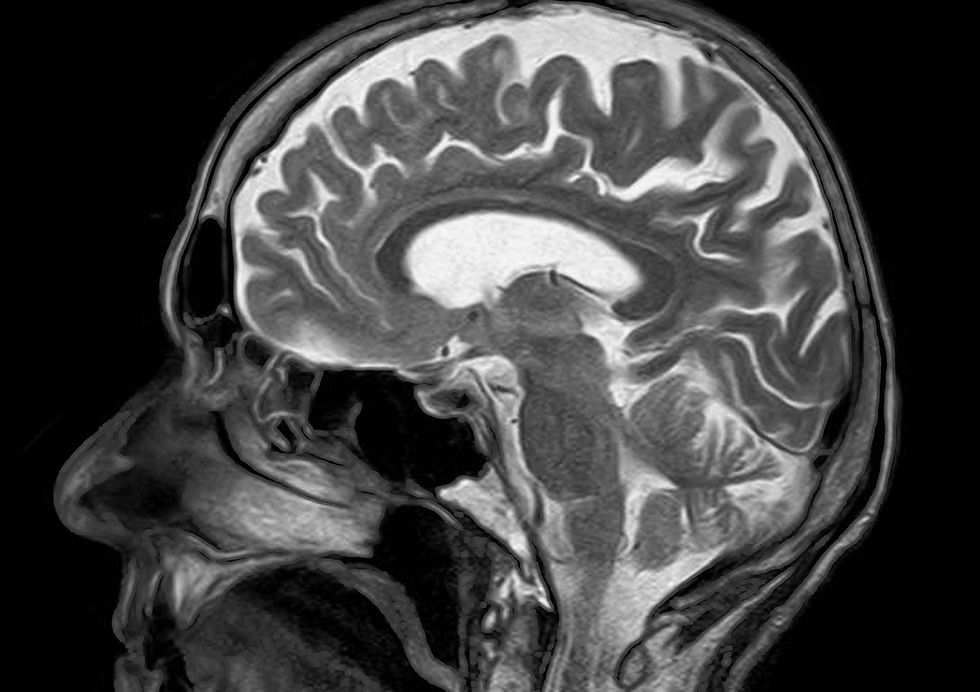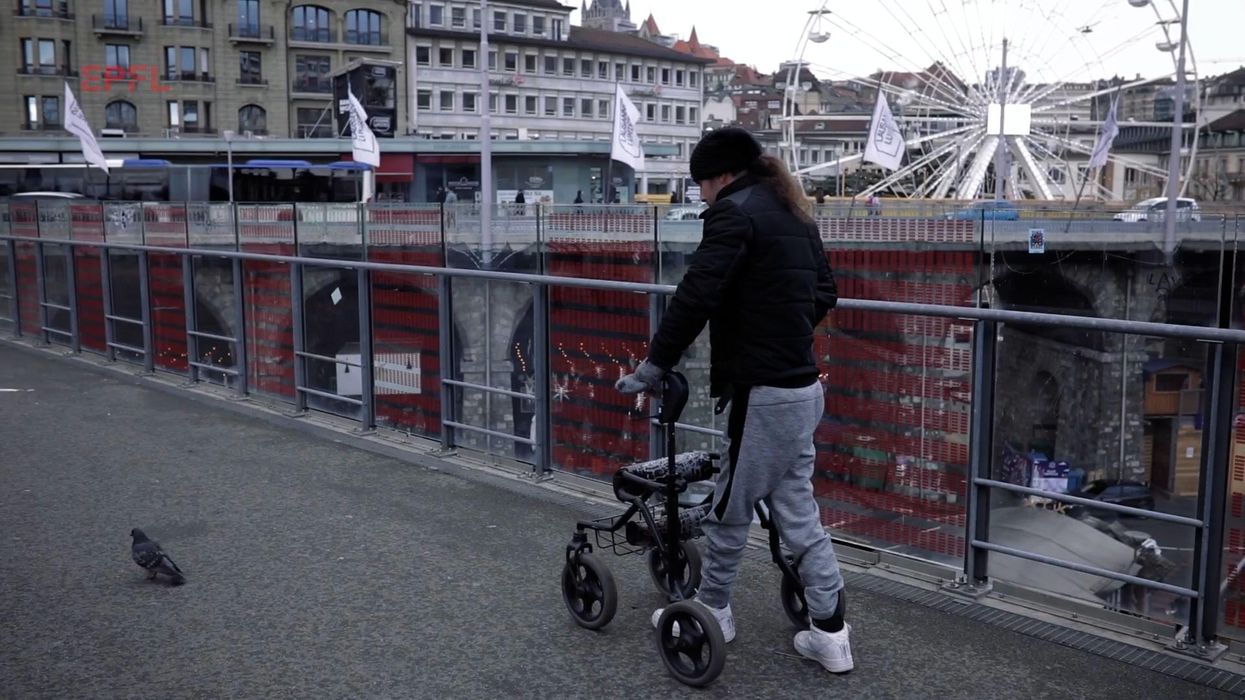Harry Fletcher
Mar 24, 2022
New implants help completely paralysed people walk again
EPFL
A brain implant has helped a paralysed man to communicate and allowed him to ask for beer with just his thoughts, according to a new study.
The unnamed German patient’s was diagnosed with amyotrophic lateral sclerosis (ALS) in 2015 when he was just 30-years-old.
While the man's cognitive function didn’t change following the diagnosis, the condition caused a loss of muscle control.
His condition has progressed over recent years and he’s been communicating by moving his eyes while relatives hold up grids of letters.
Sign up to our new free Indy100 weekly newsletter
Now, though, the man has had two microchips placed in his motor cortex which controls movement. While his family had feared that he’d soon be unable to communicate, those fears have now been negated.
The chips register activity in the brain, and when there is an increase in activity a rising sound plays on a device. When there is a decrease, the computer plays a descending tone.
Researchers Ujwal Chaudhary and Niels Birbaumer published their findings in Nature Communications. They call the method neurofeedback, with the patient able to see their activity recorded in real time and learn to control it.
Chaudhary said one of the first sentences the patient spelled out was: "Boys, it works so effortlessly."

While the system allowed him to ask for food and request to spend time with his family, there was one thing that he consistently asked for.
"Many times, I was with him until midnight, or past midnight. The last word was always 'beer',” Chaudhary added.
It’s the most recent study published in Nature Communications to make headlines over recent weeks, after three patients suffering from complete paralysis had their body movements rapidly restored thanks to a new implant.
The novel implant electrically stimulates the spinal cord and was found to restore body movements within a few hours of the onset of therapy in the patients, showed new research.
Have your say in our news democracy. Click the upvote icon at the top of the page to help raise this article through the indy100 rankings.Top 100
The Conversation (0)














